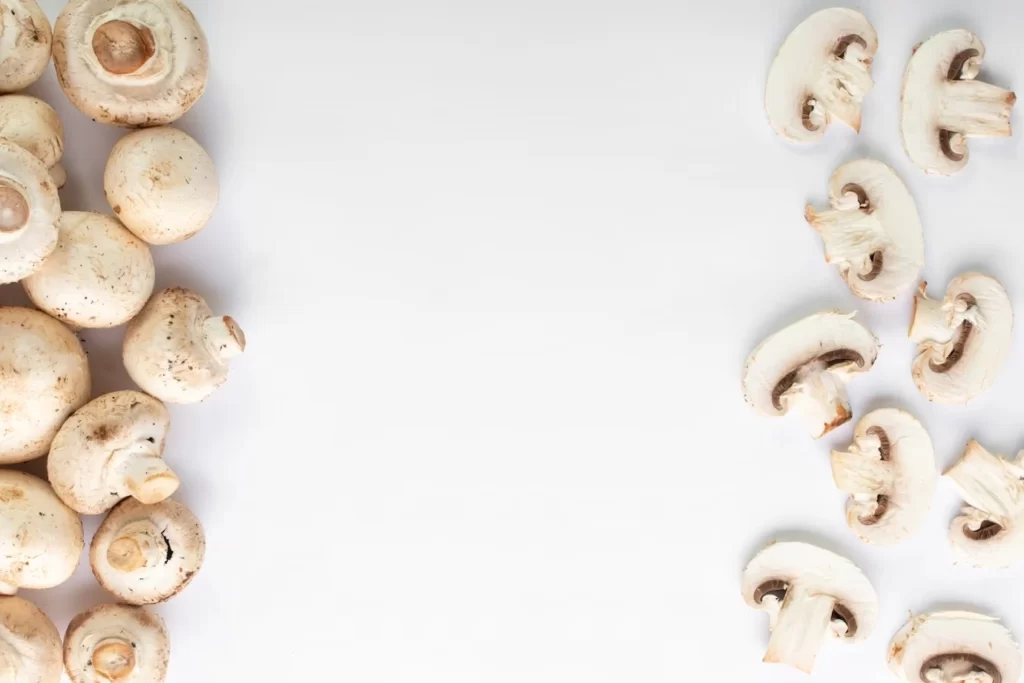
Are you looking for a natural way to improve your health? Look no further than the fascinating world of mushrooms. These fungi possess remarkable properties that have been utilized for centuries in various traditional medicine practices. Not only do they bring unique flavors and textures to culinary delights, but they also offer a multitude of health benefits. In this article, we will delve into the incredible advantages that mushrooms bring to the table & health benefits of Mushrooms .
Introduction -Health Benefits of Mushrooms
“The Wonders of Mushrooms“
Mushrooms are not just a pizza topping or a colorful addition to salads; they are a powerhouse of nutrients that can significantly contribute to your overall well-being. From boosting your immune system to supporting heart health, mushrooms have much to offer in terms of health benefits.
Nutritional Value of Mushrooms
“A Nutrient Powerhouse“
Mushrooms are low in calories and fat while being packed with essential vitamins, minerals, and antioxidants. They are an excellent source of B vitamins, including riboflavin, niacin, and pantothenic acid. Moreover, mushrooms are one of the few non-animal sources of vitamin D, which is crucial for bone health.
Boosts Immune System
“Strengthening Your Body’s Defense“
Rich in Antioxidants
Mushrooms contain a wide array of antioxidants that help protect your cells from damage caused by free radicals. Antioxidants like ergothioneine and also selenium found in mushrooms have been linked to a reduced risk of chronic diseases.
Enhances Immune Response
Certain types of mushrooms, such as reishi and shiitake, have been used in traditional medicine for their immune-boosting properties. These mushrooms contain bioactive compounds that can enhance the activity of immune cells and also promote a robust immune response.

Supports Heart Health
“Love Your Heart“
Cholesterol Management
Mushrooms are naturally free of cholesterol and also low in fat. Consuming mushrooms as part of a balanced diet can help manage cholesterol levels, reducing the risk of heart disease.
Blood Pressure Regulation
Some varieties of mushrooms, such as maitake and shiitake, contain bioactive compounds that have been associated with lowering blood pressure. By incorporating mushrooms into your meals, you can contribute to maintaining healthy blood pressure levels.
Promotes Brain Function
“Nourishing the Mind”
Cognitive Enhancement
Research suggests that certain mushroom species, such as lion’s mane and cordyceps, may possess cognitive-enhancing properties. These mushrooms are believed to stimulate nerve growth and support brain health, potentially improving memory, focus, and overall cognitive function.
Neuroprotective Properties
The unique combination of antioxidants and bioactive compounds in mushrooms may help protect brain cells from oxidative stress and age-related damage. This neuroprotective effect could have long-term benefits for maintaining brain health and also reducing the risk of neurodegenerative diseases.
Aids in Weight Management
“Maintaining a Healthy Weight“
High Fiber Content
Mushrooms are an excellent source of dietary fiber, which aids in digestion and also contributes to feelings of fullness. Including mushrooms in your meals can help control your appetite, making it easier to maintain a healthy weight.
Low in Calories and Fat
With their low calorie and fat content, mushrooms make a satisfying and nutritious addition to any weight-conscious diet. They provide a flavorful alternative to high-calorie ingredients while still offering a rich array of vitamins and minerals.
Provides Essential Vitamins and Minerals
“Nutrient Powerhouse“
Vitamin D Source
Mushrooms are one of the few food sources of vitamin D, a nutrient crucial for bone health and immune function. By exposing mushrooms to sunlight or ultraviolet light, their vitamin D content can be increased, making them an excellent dietary source of this essential vitamin.
Rich in B Vitamins
Mushrooms are abundant in various B vitamins, including riboflavin (B2), niacin (B3), and pantothenic acid (B5). These vitamins play essential roles in energy metabolism, cell function, and also the maintenance of healthy skin and hair.
Supports Digestive Health
“Happy Gut, Happy Life“
Dietary Fiber Benefits
Mushrooms are a rich source of dietary fiber, which promotes healthy digestion and regular bowel movements. Adequate fiber intake is associated with a reduced risk of constipation, diverticulosis, and also other digestive issues.
Prebiotic Properties
Certain types of mushrooms contain prebiotic fibers that nourish beneficial gut bacteria. These prebiotics help maintain a healthy balance of gut flora, contributing to improved digestion and overall gut health.
Reduces Inflammation
“Fighting Inflammation“
Anti-inflammatory Compounds
Mushrooms contain bioactive compounds with anti-inflammatory properties, such as phenols and polysaccharides. These compounds have been shown to help reduce inflammation in the body, potentially benefiting individuals with conditions like arthritis and inflammatory bowel disease.
Alleviating Joint Pain
The anti-inflammatory properties of mushrooms, combined with their rich nutritional profile, can contribute to relieving joint pain and also stiffness. Incorporating mushrooms into an anti-inflammatory diet may offer a natural approach to managing symptoms of inflammatory conditions.
Conclusion – Health Benefits of Mushrooms
Incorporating mushrooms into your diet can be a flavorful way to boost your health. From enhancing your immune system and supporting heart health to promoting brain function and aiding weight management, mushrooms offer a wide range of benefits. With their impressive nutrient profile and various bioactive compounds, health benefits of Mushrooms have rightfully earned their place as a valuable ingredient in both culinary and medicinal practices.
FAQs
Frequently Asked Questions
Q: Are all mushrooms edible?
A: While the majority of mushrooms are safe to eat, there are some toxic varieties that should be avoided. It is essential to have proper knowledge or consult an expert when foraging for wild mushrooms.
Q: Can mushrooms help prevent cancer?
A: Some studies suggest that certain mushrooms, such as shiitake and maitake, may have anti-cancer properties. However, more research is needed to fully understand their role in cancer prevention and treatment.
Q: Are mushrooms suitable for people with diabetes?
A: Mushrooms are generally considered a good food choice for people with diabetes. They are low in carbohydrates and have a minimal impact on blood sugar levels. However, it’s best to consult a healthcare professional for personalized dietary advice.
Q: Can mushrooms replace meat in vegetarian diets?
A: Mushrooms are often used as a meat substitute in vegetarian and vegan diets due to their meaty texture and umami flavor. They can provide a satisfying alternative while adding nutritional value to plant-based meals.
Q: How should mushrooms be stored to maintain freshness?
A: To keep mushrooms fresh, store them in a paper bag or a breathable container in the refrigerator. Avoid plastic bags, as they can trap moisture and cause the mushrooms to spoil more quickly.
LIKE WHAT YOU’RE READING?
CHECK OUT SOME OF OUR OTHER GREAT CONTENT HERE:
- HOW TO MAINTAIN HEALTHY LIFESTYLE?
- 10 TIPS ON HEALTHY LIFESTYLE
- BEST MOTIVATIONAL QUOTE FOR SUCCESS IN LIFE
- HOW TO REDUCE FUEL CONSUMPTION?
- LEARN THE ART OF TIME MANAGEMENT
- DEVELOPING EMOTIONAL INTELLIGENCE
- LEARN PROBLEM SOLVING SKILLS
- BEST BOOKS ABOUT SWAMI VIVEKANANDA
- 20 BEST QUOTES FOR A HEALTHY LIFESTYLE
- WHAT ARE BENEFITS OF RUNNING?
- WHAT ARE THE BENEFITS OF GREEN TEA?
- BENEFITS OF FENUGREEK FOR WOMEN: A COMPREHENSIVE GUIDE



